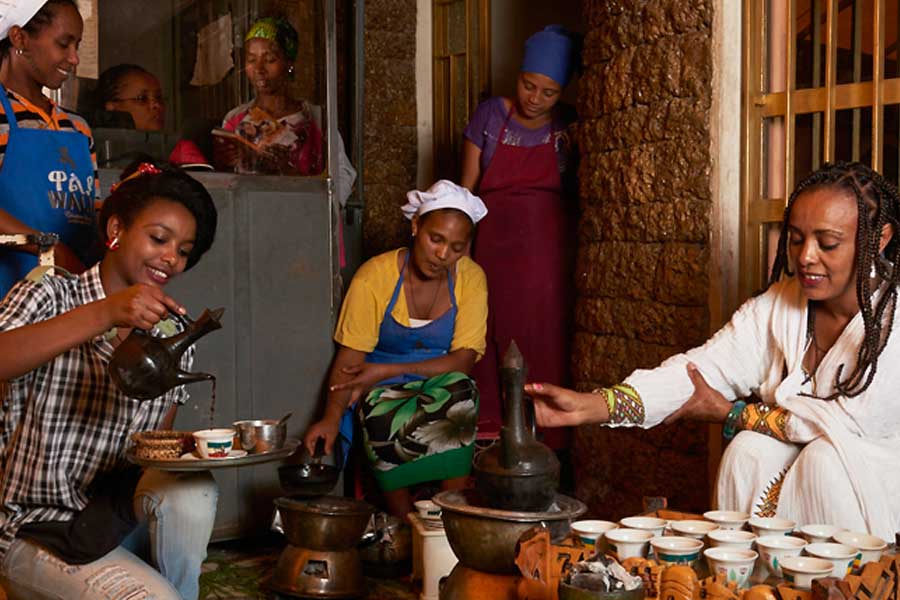
By Belay Abera
The United States mid-term elections saw the greatest proportion of women become legislators in the nation’s history. This is in keeping with a growing trend around the world, including Ethiopia. Given the long history of humankind where many governments have come and gone, that including women has been realized so late is hard to digest. At least we can find comfort in the understanding that it is better late than never, and that there is a conscious effort to ensure that this is a trend that will not be reversed.
The world today is fortunate to have modern icons such as Germany’s Angela Merkel and Liberia’s Ellen Johnson Sirleaf, Africa’s first female elected head of state. But there is still a great deal of work to be done before it can be said that gender equality is assured. Too many women are still denied the opportunity to access education, health services, capital, land and participate in politics.
By 2017, only two countries have 50pc or more women in parliament in the upper or lower houses. These include Rwanda and Bolivia. After Mauritius’ president, Ameenah Gurib-Fakim, stepped down from office back in March of this year, Africa did not have a single female head of state until Sahleworq’s appointment last month.
It is cultural and religious barriers that have hindered women from holding leadership positions for far too long. Such disenfranchisement by patriarchal societies has meant that women were excluded from fighting against issues such as gender-based violence, parental leave and childcare, pensions and poor political and economic circumstances. This has created a feedback loop that has been disastrous for the nation.
Historically, there have been women that held powerful positions and contributed to the nation’s development. Empress Zewditu, Ethiopia’s first female head of state, and Empress Taytu easily come to the mind. But there rarely has been a conscious effort to include women in political leadership or institutionalise gender parity.
Here, Prime Minister Abiy Ahmed’s contribution to ensuring gender equality should be commendable. He has given half of the ministerial portfolios in his cabinet to women. Both the ministries of Defense and Peace - the latter with a mandate largely similar to what is known as the Ministry of Interior in other countries – are now being headed by women.
And it did not stop there. Sahleworq’s election is considered one of the brightest moments of Ethiopia’s politics as well as Meaza Ashenafi’s appointment as the first female president of the Supreme Court.
At the very least, women’s inclusion into political leadership is a fulfilment of the democratic ethos, the representation of all and sundry in government. It should have long been evident that a diversity of experiences and leadership styles in government improves a nation’s circumstances.
It has also been shown that women are likely to be calm under pressure, work across the aisle even during the most combative of situations and are better at empathising. One can look at Merkel, Britain’s Theresa May and Hillary Clinton, and their ability to serve their constituencies through hot and cold, all the while remaining composed, patient and principled.
Aside from positions of leadership, women’s participation in the sciences and the arts will have an undeniable contribution to how we understand ourselves, our environments and the economy. This means that the gender equality we see in our Council of Ministers has to trickle down. The women in leadership positions are still very much the exception.
In schools, on the street and at homes, women are usually left with the short end of the stick. There need to be quota laws in non-governmental as well as governmental institutions to make sure that the good news we have been hearing for the past couple of weeks is normal and not exceptional. This means it should be a law that about half of the women in positions of power through appointments should be women.
PUBLISHED ON
[ VOL
19 , NO
968]


Life Matters | Jul 31,2021

Films Review | Sep 10,2021

Viewpoints | Feb 19,2022

Editorial | Apr 17,2021

Sunday with Eden | Mar 13,2021

Fortune News | Feb 20,2021

Commentaries | Oct 31,2020

Commentaries | Jun 19,2021

Sunday with Eden | Dec 30,2023

Commentaries | Nov 16,2019

My Opinion | 131656 Views | Aug 14,2021

My Opinion | 128020 Views | Aug 21,2021

My Opinion | 125983 Views | Sep 10,2021

My Opinion | 123607 Views | Aug 07,2021

Dec 22 , 2024 . By TIZITA SHEWAFERAW
Charged with transforming colossal state-owned enterprises into modern and competitiv...

Aug 18 , 2024 . By AKSAH ITALO
Although predictable Yonas Zerihun's job in the ride-hailing service is not immune to...

Jul 28 , 2024 . By TIZITA SHEWAFERAW
Unhabitual, perhaps too many, Samuel Gebreyohannes, 38, used to occasionally enjoy a couple of beers at breakfast. However, he recently swit...

Jul 13 , 2024 . By AKSAH ITALO
Investors who rely on tractors, trucks, and field vehicles for commuting, transporting commodities, and f...

Jun 28 , 2025
Meseret Damtie, the assertive auditor general, has never been shy about naming names...

Jun 21 , 2025
A well-worn adage says, “Budget is not destiny, but it is direction.” Examining t...

Jun 14 , 2025
Yet again, the Horn of Africa is bracing for trouble. A region already frayed by wars...

Jun 7 , 2025
Few promises shine brighter in Addis Abeba than the pledge of a roof for every family...

Jun 29 , 2025
Addis Abeba's first rains have coincided with a sweeping rise in private school tuition, prompting the city's education...

Jun 29 , 2025 . By BEZAWIT HULUAGER
Central Bank Governor Mamo Mihretu claimed a bold reconfiguration of monetary policy...

Jun 29 , 2025 . By BEZAWIT HULUAGER
The federal government is betting on a sweeping overhaul of the driver licensing regi...

Jun 29 , 2025 . By NAHOM AYELE
Gadaa Bank has listed 1.2 million shares on the Ethiopian Securities Exchange (ESX),...